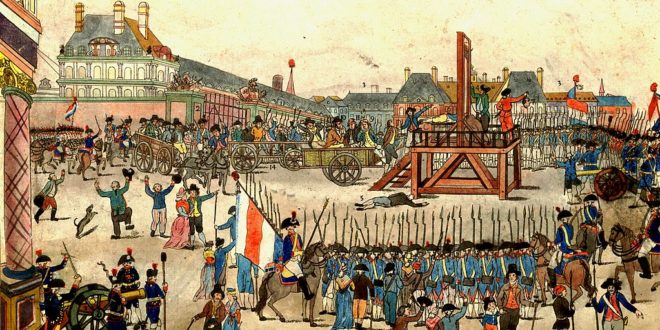Podcast: Play in new window | Download (Duration: 58:37 — 43.3MB)
We open with “Ça ira” (the Sans-culottes version) performed by Edith Piaf. “Ça ira” is an emblematic song of the French Revolution, first heard in May 1790. The title and theme of the refrain were inspired by Benjamin Franklin, in France as a representative of the Continental Congress, who was apparently quite popular among the French people. When asked about the American Revolutionary War, he would reportedly reply, “Ça ira, ça ira” (“It’ll be fine, it’ll be fine”).
Some Lyrics from the Original version…
Let us rejoice, good times will come !
The French people used to keep silent,
The aristocrat says, “Mea culpa!”
The clergy regrets its wealth,
The state, with justice, will get it.
Thanks to the careful Lafayette,
Everyone will calm down.
Ah! It’ll be fine, It’ll be fine, It’ll be fine
By the torches of the august assembly,
Ah ! It’ll be fine, It’ll be fine, It’ll be fine
An armed people will always take care of themselves.
We’ll know right from wrong,
The citizen will support the Good.
But we opened with the “Sans-culottes” version: Sans-culottes literally translates “without breeches” and refers to the common people of the lower classes in late 18th century France, a great many of whom became radical and militant partisans of the French Revolution in response to their poor quality of life under the Ancien Régime.
This version delivers the “threat” of the revolution…
Ah! It’ll be fine, It’ll be fine, It’ll be fine
aristocrats to the lamp-post
Ah! It’ll be fine, It’ll be fine, It’ll be fine
the aristocrats, we’ll hang them!
If we don’t hang them
We’ll break them
If we don’t break them
We’ll burn them
It is often said that modernity begins with the French Revolution and that this is the first great historical experience of the emptiness underlying established structures, and therefore of the possibility of radical transformation.
And at its center, reaping the whirlwind, came the “The Reign of Terror.” It’s beginning is disputed but there is a general consensus that it ended with the fall of Robespierre who was executed on July 28th 1794. Robespierre gave his famous speech on political morality on February 5, 1794, proclaiming, “If the mainspring of popular government in peace time is virtue, its resource during a revolution is at one and the same time virtue and terror; virtue, without which terror is merely terrible; terror, without which virtue is simply powerless.” It can be read as doublespeak or as a statement that certain things are worth defending, even if doing so requires violence.
But what comes to the fore in this conversation with Rebecca Spang is that the French Revolution is likely best thought of as a civil war and in that context the so-called Terror might be better understood as a desperate attempt to stabilize a government which brought the hope for equality (to begin again) and bequeathed to the world The Declarations of the Rights of Man and the Citizen.
 GUEST
GUEST
Rebecca Spang a professor in the Department of History at Indiana University, and is the Director of the Center for Eighteenth-Century Studies. She has published primarily on the interaction of politics, culture, and consumption in the 18th and 19th centuries. Her most recent book is Stuff and Money in the Time of the French Revolution, a new history of money and a new history of the French Revolution, showing that revolutionary radicalization was driven by the ever-widening gap between political ideals and the experience of daily life.
MUSIC
“Ça ira” (Sans-culottes) performed by Edith Piaf
“Carmagnole”
“Patriotic Song on the Unveiling of the Busts of Marat and Le Pelletier”
“Funeral Hymn for General Hoche”
“Le Réveil du Peuple”
“La Marseillaise” performed by Edith Piaf
CREDITS
Producer & Host: Doug Storm
Assistant Producer: Rob Schoon
Executive Producer: Wes Martin
 WFHB Bloomington Community Radio
WFHB Bloomington Community Radio


